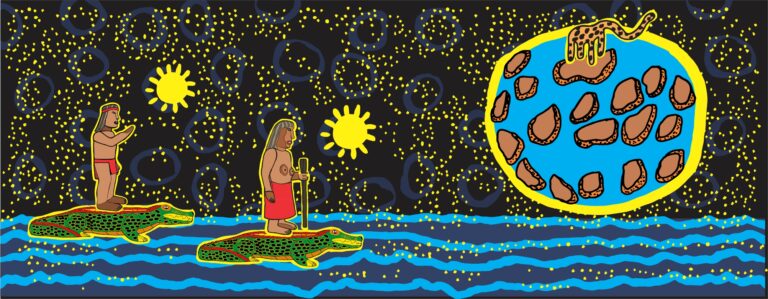Laura Montesi is a CONAHCyT researcher based at the CIESAS (Centre for Research and Higher Studies in Social Anthropology) in Oaxaca, Mexico. She is a medical anthropologist specialised in the study of chronic diseases and conditions, particularly among Indigenous populations with a focus on health disparities. She is co-editor of the books Managing Chronicity in Unequal States: Ethnographic Perspectives on Caring (UCL, 2021) and Los huaves en el tecnoceno. Disputas por la naturaleza, el cuerpo y la lengua en el México contemporáneo(INAH-Editpress, 2022).
Maria Paula Prates is a Research Fellow in Medical Anthropology of the Anthropocene at University College London (UCL) and a Collaborator Professor at the Postgraduate Programme of Social Anthropology of the Federal University of Rio Grande do Sul (PPGAS/UFRGS, Brazil). She has been carrying out ethnographic studies among and with the Guarani-Mbyá, in lowland South America, for the last 20 years. Her current research interest includes birthing, sexual and reproductive health and the embodied inequalities of the Anthropocene, with special attention to Indigenous women. Currently she is the Principal Investigator of two research projects: the first on tuberculosis among the Guarani-Mbyá Indigenous Peoples, funded by UCL Social Sciences Plus, and the second on sexual and reproductive health (from an intergenerational approach) among Indigenous women in Brazil, funded by CHIRAPAQ.
Sahra Gibbon is Professor of Medical Anthropology at University College London (UCL). She has carried out ethnographic research in the UK, Cuba, and Brazil examining issues around health inequalities, biomedicine, and public health. Her current work is focused on further examining and intervening on ‘biosocial’ research and science in birth cohorts and she is Principal Investigator for the Wellcome Trust project ‘The Embodied Inequalities of the Anthropocene. Building capacity in Medical Anthropology ‘a collaboration with colleagues in the UK, Mexico, and Brazil.
Lina Rosa Berrio-Palomo is researcher and professor at the Centre for Research and Advanced Studies in Social Anthropology (CIESAS, Pacifico Sur), Oaxaca, Mexico. Her research topics are sexual and reproductive health, Indigenous and afrodescendent people and feminist anthropology. She has coordinated several research projects on maternal health in Indigenous areas and works in collaboration with organisations of Indigenous women and non-governmental organisations. Her current work focuses on Afromexicans’ reproductive health and traditional midwifery in Mexico.
